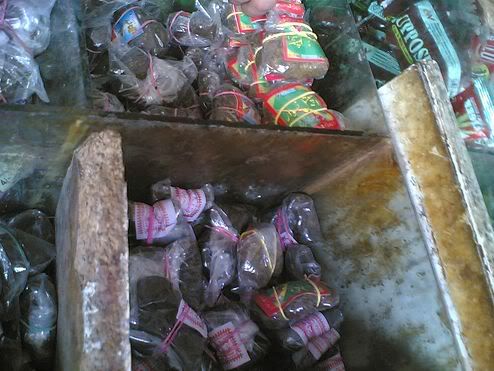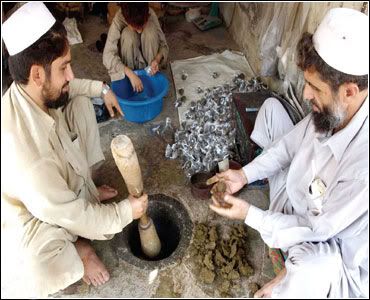Morey (Mother) is one of the most beautiful poem written by Ghani Khan,one of the greatest Pashto poet and philosopher of 20th century. Ghani Khan's mother died of illness when he was only six years old. This poem shows how much "Morey" meant for him. Sardar Ali Takkar, the famous pashto singer has sung this song, and listening it in his beautiful voice brings tears to your eyes.....
TRANSLATION
Morey (Mother)
Though you are buried and hidden in dust
I still remember your black beautiful eyes
Mother, I havn't forgotten your arms
Around me in my pain
The stories you used to tell me, I recall them every evening
Of Ganjay, Haramooni and Bahram
Your beatings were sweeter than the love of others
Your harsh words were better than the prayers of others
When I'd do something bad
And Baba (father) would lose his temper
You'd be my only friend
And my tears would make you cry as well
Mother, I remember that small swing
Which you used to swing for me
With each swing, your songs and your smiles
Would make my heart as light as the air
Though you are buried and hidden in dust
Though you are buried and hidden in dust
Or when you'd be angry with me
And would make me cry a lot
Mother, I remember all the Eids
When you'd wear jewellery on your beautiful face
You'd fight with me and would make me clean and beautiful
And I'd make myself dirty in the mud
You'd beat me for that and would then kiss me with love
With smiles you'd tolerate my harsh words
I do still remember the smile on your lips
I still remember my running to the festivals
And afterwards when I'd come home tired in the evening
In your lap, and with your 'Allahu' (lullaby) I'd sleep
Though you are buried and hidden in dust
Mother, I still remember one dark night
When my body was hot like fire
My head was full with the noises of airplanes
And my ears went deaf to sound
O my everything, my mother, you'd say 'Qurbaan'
You had cure for each of my 'ah' (cry)
Mother, I also remember another day
When our home was full of cries
Your otherwise warm hands had turned cold
Your otherwise pink beautiful cheeks had turned colorless white
With a smile on your face, you were deep asleep and were not waking up
I was crying but you were not waking up
I said "Mother, mother", but you didn't reply "Qurbaan" to me
But you were lying there like a flower in the autumn
I was crying and you were sleeping with a smile on your face
I was crying and you were not asking me why?
Though you are buried and hidden in dust
I still remember your beautiful black eyes
(Ghani Khan)




















